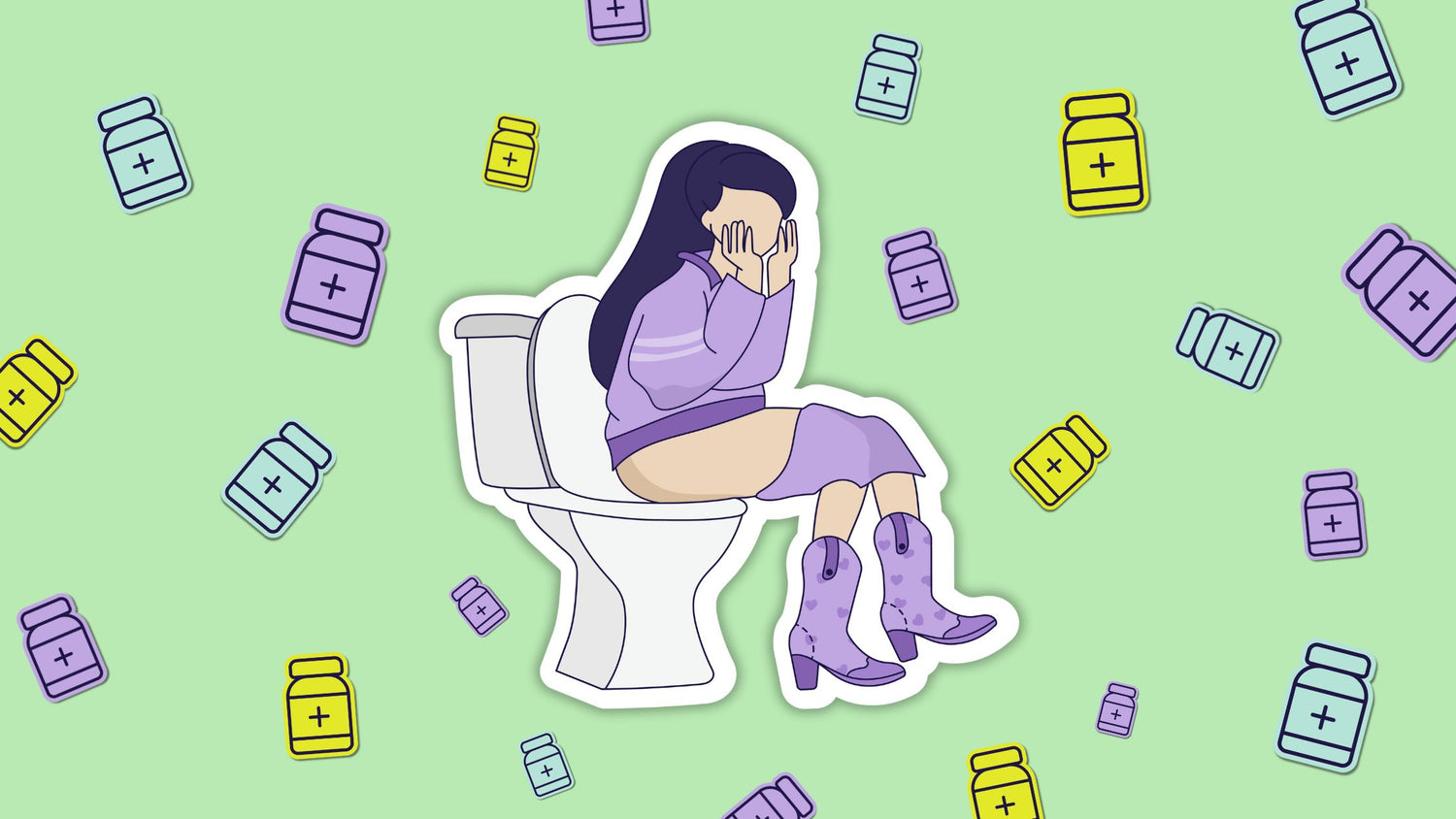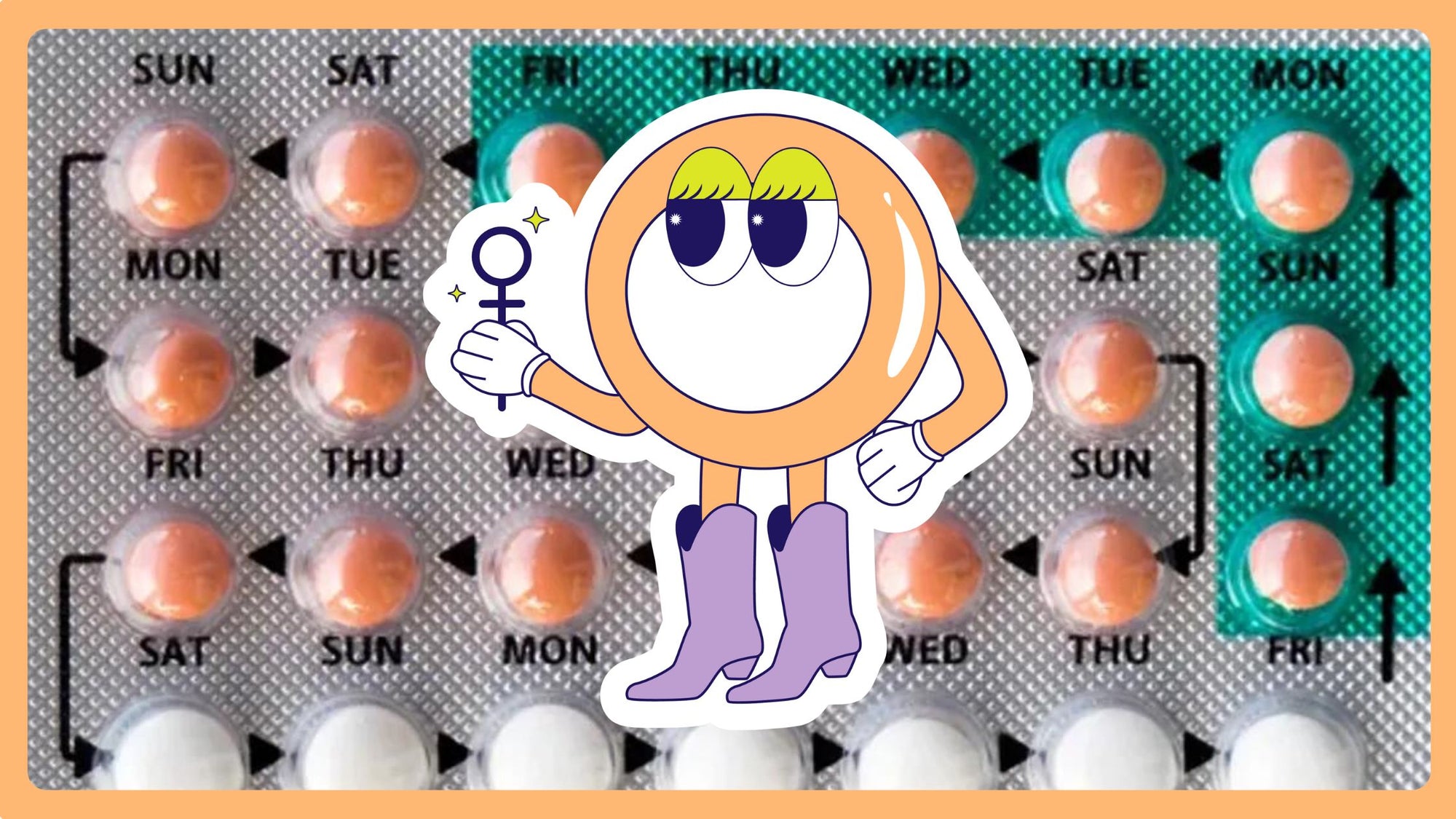Constipation is one of the most common digestive issues that everybody will experience at many points in their lives, and it tends to be associated with other digestive symptoms like bloating and abdominal cramps. It’s an uncomfortable symptom that is often easily resolved and is only a transient issue most of the time.
Magnesium can be beneficial as a natural remedy for relieving constipation when you don’t want to reach for synthetic laxatives, which can be harsh on your digestive system. This article will cover more about how magnesium can help relieve constipation, but first, let’s quickly cover what constipation is and go through the basics of magnesium, including its functions and dietary sources.
What is Constipation?
Constipation is a common digestive issue that can from a number of different things, including short term and long term factors. It leads to further digestive symptoms, including bloating, gas, abdominal pain, and a loss of appetite due to the feeling of fullness it can cause in the abdomen.
Constipation leads to a hard, dry stool that is difficult to pass. This is often because the stool has been sitting in the colon for longer than it should, enabling the body to absorb more water from it.
What is Magnesium?
Magnesium is an essential mineral that is required for over 300 different enzymatic reactions in the body. It is a vital micronutrient for the following body processes and functions:
- Energy production - magnesium acts as a cofactor in the production of adenosine triphosphate (ATP), which is the energy currency in the body
- Muscle contraction - the muscles require magnesium to contract and relax properly. This includes the muscle of the heart (the myocardium)
- Nerve impulses - magnesium aids the conduction and transmission of signals between neurons
- Protein synthesis - the body needs magnesium to synthesise proteins, including DNA and RNA, and repair proteins
- Bone structure - over half of the body’s magnesium is stored in the bones, and it works alongside calcium and vitamin D to support strong, dense bones
- Blood glucose control - magnesium aids in the regulation of blood glucose and insulin concentrations
Magnesium is pretty important, right? So, where can you find it? It’s abundant in:
- Green vegetables, such as spinach, kale, and broccoli
- Some fruits, including bananas and avocados
- Nuts and seeds, especially almonds, cashews, pumpkin seeds, and sunflower seeds
- Lentils and chickpeas
- Brown rice and quinoa
- Certain fish, including salmon and mackerel
Looking at this list, you can see that magnesium is found in a wide variety of foods, so eating a well-balanced diet will ensure you consume enough of this essential micronutrient. Signs of magnesium deficiency to look out for if you’re not eating enough magnesium-rich foods include muscle twitches and cramps, fatigue, weakness, increased anxiety, and an irregular heartbeat.
If you are experiencing a combination of these symptoms, it’s best to speak with a registered dietitian who can recommend suitable dietary changes to boost your magnesium intake to the recommended level. For the average adult, the recommended daily magnesium intake is around 300 to 400 milligrams (mg).
Alongside dietary changes, you can increase your magnesium intake by taking a supplement. A Dose For Blocked Bellies combines six herbal extracts with magnesium citrate to relieve constipation and bloating. Keep reading to learn more about our brand-new constipation-busting supplement!
How Does Magnesium Improve Constipation?
We didn’t mention anything about constipation when discussing the important functions of magnesium, but certain types of magnesium have been shown to enhance digestive health and promote regularity. Magnesium can improve your digestive health, get rid of constipation, and help you have bowel movements through a few different mechanisms, including the following.
It acts as an osmotic laxative
Magnesium can act as a natural laxative by drawing water into the intestinal lumen, softening the stool and making it easier to pass. An increase in the volume of water within the intestines can stimulate peristalsis of the smooth muscle in the colon to help push things through the lower digestive tract and into the toilet.
It helps to relax the muscles in the digestive tract
At the same time as increasing smooth muscle contractions in the colon, magnesium can also act as a relaxant to prevent the muscle cramps that are associated with constipation.
In order for peristalsis to occur efficiently, the smooth muscle must first contract and then relax as the muscles next to it contract. This wave of contractions and relaxations pushes food through the gastrointestinal tract. Magnesium aids both the contraction and relaxation phases of peristalsis to promote optimal digestive function.
It helps to regulate fluid balance and electrolytes
Maintaining proper fluid and electrolyte balance is essential for avoiding constipation as it helps keep the stool soft and easy to pass. Magnesium aids fluid and electrolyte balance within the gastrointestinal tract to ensure the efficient digestion and absorption of nutrients.
It acts as a cofactor for digestive enzymes
Another important way in which magnesium gives your digestion a boost and reduces the risk of constipation is by acting as a cofactor for digestive enzymes. By supporting the function of the digestive enzymes in your body, magnesium can directly aid the metabolism of ingested foods and prevent blockages.
Other Tips to Relieve Constipation
Aside from taking your daily dose of A Dose For Blocked Bellies, which contains a unique and proprietary blend to support bowel regularity, there are lots of other things you can do to eliminate constipation.
Stay hydrated
Staying hydrated is one of the best daily habits for beating constipation in the long term. Water helps soften the stool and prevent it from becoming dry and hard to pass, thereby preventing constipation.
Make a conscious effort to avoid dehydration by drinking regular sips of water throughout the day. Aim to avoid feeling thirsty, as this is usually the first sign of dehydration. You’ll need to drink more if it’s a particularly warm day or you’ve been exercising intensely.
Eat lots of fibre, especially insoluble fibre
Insoluble fibre supports digestion by drawing water into the stool and softening it. You can find it in wheat bran, whole grains, nuts, beans, apples, green beans, and potatoes. Consuming more of these foods in your diet can promote optimal digestion and prevent bloating and constipation.
Some tips for adding more fibre to your diet include:
- Switching your morning toast from white bread to wholemeal bread
- Having a big bowl of oatmeal in the mornings
- Making yourself a vegetable stir fry with whole wheat noodles, broccoli, and cauliflower
- Mixing frozen vegetables into your pasta bowl
- Snacking on a packet of nuts or trail mix
Drink some caffeinated coffee
Caffeine can promote the contraction of the smooth muscle in the colon, stimulating peristalsis and bowel movements. This is why you might find that you need to run to the toilet straight after drinking a strong cup of coffee in the morning.
Although not ideal if you’re in the middle of an important work meeting, you can use the natural laxative effects of caffeine to your advantage. When you’re feeling constipated, make yourself a big mug of caffeinated coffee and see if this does the trick to get things moving down below. It saves you from having to take synthetic laxative medications that can be harsh on the gut.
You’ll need to be careful not to overdo it with the caffeine, especially if you’re more sensitive to it than others or you have a chronic digestive condition, such as irritable bowel syndrome (IBS). Too much caffeine can cause you to get abdominal cramps that can be uncomfortable and even painful to deal with.
You can use this quick trick if you’re experiencing constipation on holiday as well as when you’re at home. Order an espresso from a local cafe or the bar in your hotel for some rapid relief.
Reduce your consumption of dairy products or avoid them altogether
Many people are sensitive to lactose and don’t even realise it. They bloat and feel constipated when they eat dairy but don’t question it and assume it’s normal.
If you’re sensitive to lactose or have an intolerance, you might find that you get constipated when you consume dairy products like milk, cheese, yoghurt, and ice cream. If you have an intolerance to lactose, you’ll probably also get gassy and bloated when you eat dairy, even if it’s only a small amount.
In this case, try to avoid eating dairy wherever possible. Even if it’s your favourite type of food to eat, you’ll need to resist temptation if you want to avoid toilet troubles. Choose lactose-free alternatives when you are doing your grocery shopping so you can still make all of your favourite dishes and eat delicious snacks without irritating your gut.
Manage your stress
Stress can wreak havoc on your digestive system. It can cause the release of cortisol, which is a hormone that diverts blood away from your digestive tract, reducing the rate at which your digestive tract can metabolise and absorb nutrients from the foods you eat.
Slower metabolism and digestion reduces gut motility and causes a build up of stools in the colon. In turn, it increases the risk of constipation and associated bloating and abdominal pain.
To avoid the negative effects of stress on the digestive tract, practice stress management. Deep breathing, meditation, and gentle exercise are great ways to calm your mind and reduce your cortisol levels.
If regular breath work and exercise are ineffective for you, you may need to look at the bigger picture and consider which areas of your life are causing you to feel chronically stressed so you can make positive changes. For example, if work is causing you significant stress, consider whether it’s financially viable for you to reduce your work hours or outsource some of your tasks to somebody else, even if only temporarily.
More About A Dose For Blocked Bellies
At Wild Dose, we have formulated the perfect supplement for constipation relief. Just two capsules of A Dose For Blocked Bellies each day can help tackle any blockages naturally and ensure you can maintain good regularity when going to the toilet.
A Dose For Blocked Bellies contains a blend of fennel seed extract, rhubarb root extract, slippery elm bark, ginger root extract, prune juice extract, aloe vera extract, and magnesium citrate. Together, these ingredients work by stimulating the smooth muscle in your colon to contract (improving gut motility), increasing water absorption in the stool (causing it to become softer), and reducing colonic inflammation. It offers digestive relief that is much gentler on your stomach and intestines than synthetic laxatives that you can buy over the counter at the pharmacy.









